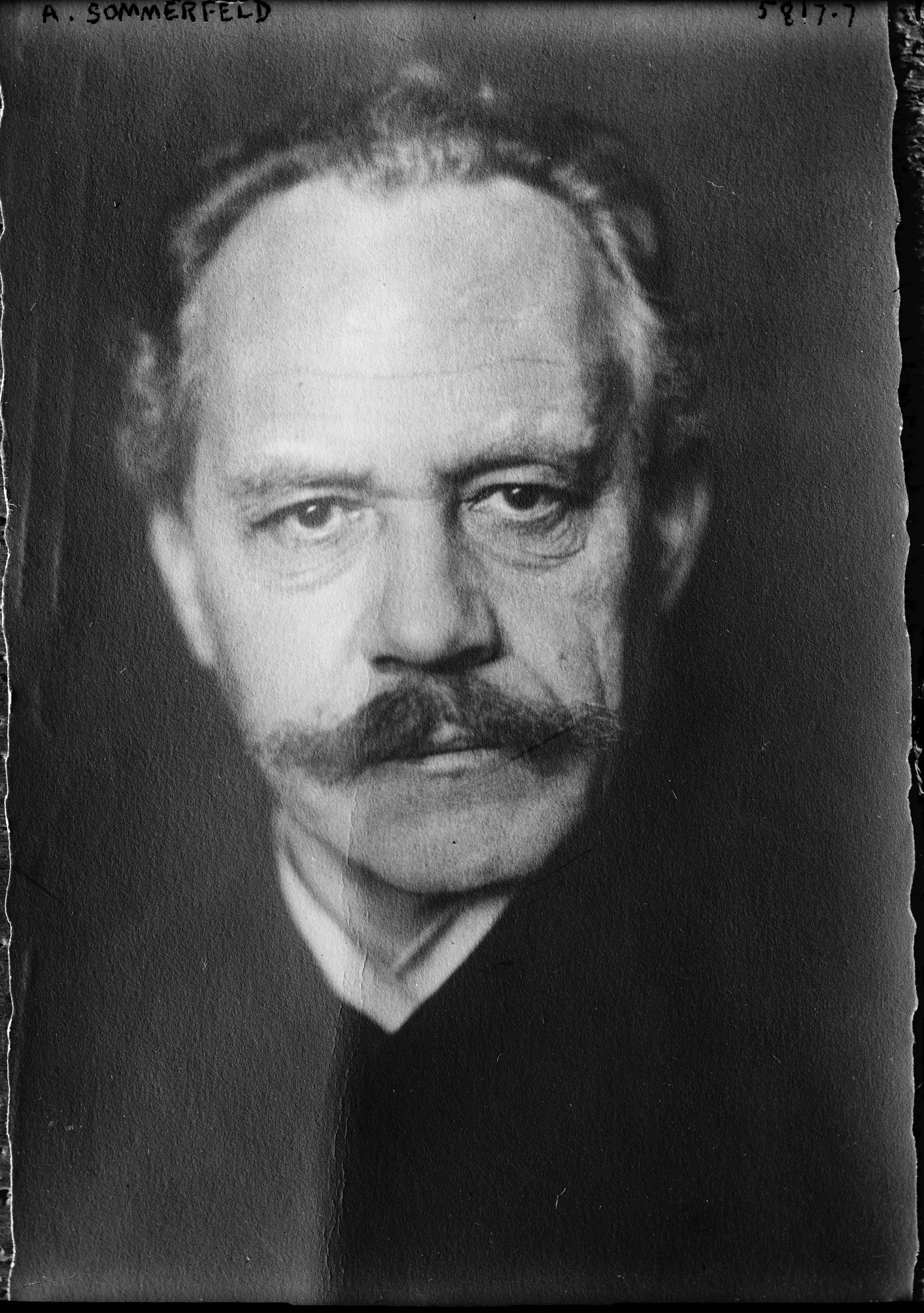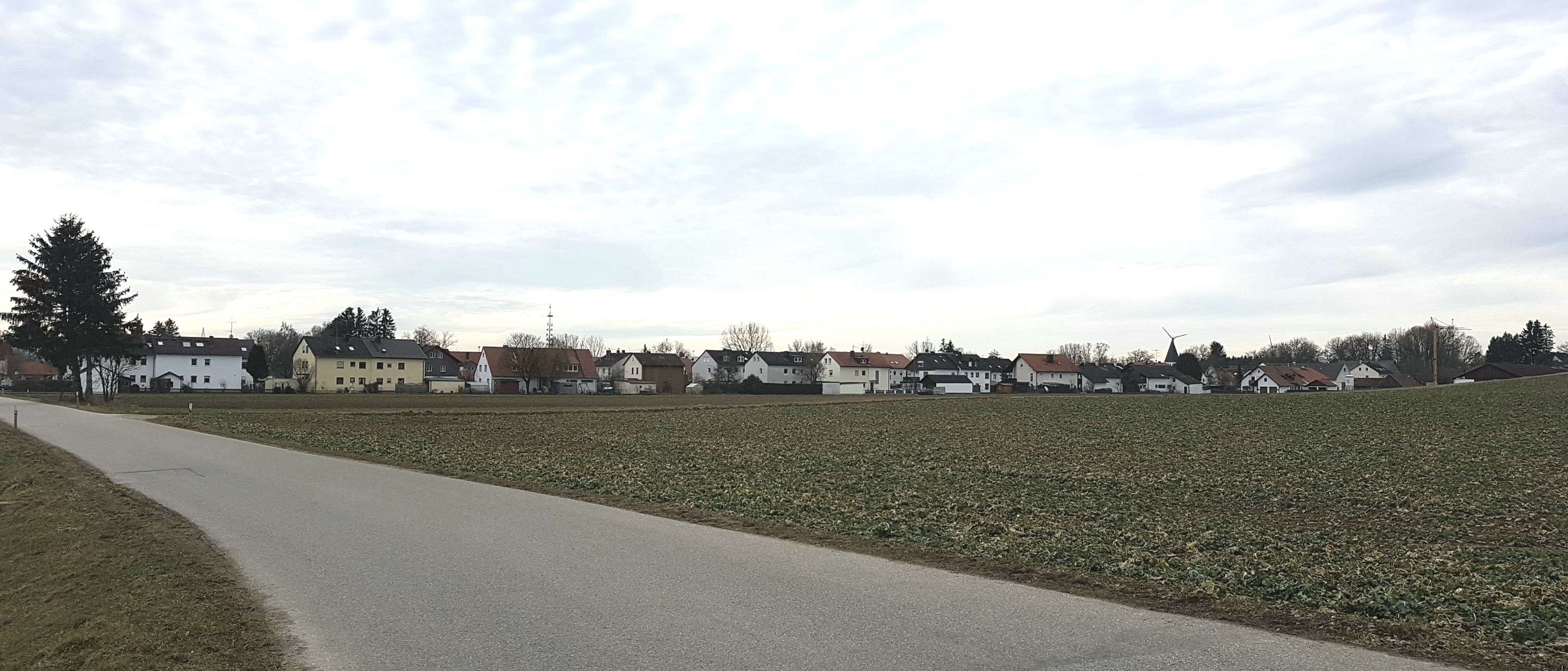|
Friedrich Burmeister
Friedrich Burmeister (1890–1969) was a German geophysicist. He was director of the Munich University’s Geomagnetic Observatory. Burmeister studied mathematics and physics at the University of Munich under Hugo von Seeliger and Arnold Sommerfeld, and he received his doctorate in 1919. Upon graduation, he became Director of the Munich Geomagnetic Observatory, of the Geomagnetism Branch of the Munich Earth Observatory, under the Geophysics Department of Earth and Environmental Sciences, at the University of Munich. Due to the industrialization of Munich, operation of the observatory became more and more difficult, so, in 1927 the Munich Geomagnetic Observatory was closed and moved to a village 25 kilometers west of Munich, and it became the Maisach Geomagnetic Observatory. Due to the construction of a large military air base near Maisach, this facility was closed on October 31, 1937. It was moved to a small town west of Munich, and it became the Fürstenfeldbruck Fürst ... [...More Info...] [...Related Items...] OR: [Wikipedia] [Google] [Baidu] |
Geophysics
Geophysics () is a subject of natural science concerned with the physical processes and physical properties of the Earth and its surrounding space environment, and the use of quantitative methods for their analysis. The term ''geophysics'' sometimes refers only to solid earth applications: Earth's shape; its gravitational and magnetic fields; its internal structure and composition; its dynamics and their surface expression in plate tectonics, the generation of magmas, volcanism and rock formation. However, modern geophysics organizations and pure scientists use a broader definition that includes the water cycle including snow and ice; fluid dynamics of the oceans and the atmosphere; electricity and magnetism in the ionosphere and magnetosphere and solar-terrestrial physics; and analogous problems associated with the Moon and other planets. Gutenberg, B., 1929, Lehrbuch der Geophysik. Leipzig. Berlin (Gebruder Borntraeger). Runcorn, S.K, (editor-in-chief), 1967, International ... [...More Info...] [...Related Items...] OR: [Wikipedia] [Google] [Baidu] |
Geomagnetic
Earth's magnetic field, also known as the geomagnetic field, is the magnetic field that extends from Earth's interior out into space, where it interacts with the solar wind, a stream of charged particles emanating from the Sun. The magnetic field is generated by electric currents due to the motion of convection currents of a mixture of molten iron and nickel in Earth's outer core: these convection currents are caused by heat escaping from the core, a natural process called a geodynamo. The magnitude of Earth's magnetic field at its surface ranges from . As an approximation, it is represented by a field of a magnetic dipole currently tilted at an angle of about 11° with respect to Earth's rotational axis, as if there were an enormous bar magnet placed at that angle through the center of Earth. The North geomagnetic pole actually represents the South pole of Earth's magnetic field, and conversely the South geomagnetic pole corresponds to the north pole of Earth's magnetic fiel ... [...More Info...] [...Related Items...] OR: [Wikipedia] [Google] [Baidu] |
Observatory
An observatory is a location used for observing terrestrial, marine, or celestial events. Astronomy, climatology/meteorology, geophysical, oceanography and volcanology are examples of disciplines for which observatories have been constructed. Historically, observatories were as simple as containing an astronomical sextant (for measuring the distance between stars) or Stonehenge (which has some alignments on astronomical phenomena). Astronomical observatories Astronomical observatories are mainly divided into four categories: space-based, airborne, ground-based, and underground-based. Ground-based observatories Ground-based observatories, located on the surface of Earth, are used to make observations in the radio and visible light portions of the electromagnetic spectrum. Most optical telescopes are housed within a dome or similar structure, to protect the delicate instruments from the elements. Telescope domes have a slit or other opening in the roof that can be opened during ... [...More Info...] [...Related Items...] OR: [Wikipedia] [Google] [Baidu] |
Ludwig Maximilian University Of Munich
The Ludwig Maximilian University of Munich (simply University of Munich or LMU; german: Ludwig-Maximilians-Universität München) is a public research university in Munich, Germany. It is Germany's sixth-oldest university in continuous operation. Originally established in Ingolstadt in 1472 by Duke Ludwig IX of Bavaria-Landshut, the university was moved in 1800 to Landshut by King Maximilian I of Bavaria when the city was threatened by the French, before being relocated to its present-day location in Munich in 1826 by King Ludwig I of Bavaria. In 1802, the university was officially named Ludwig-Maximilians-Universität by King Maximilian I of Bavaria in honor of himself and Ludwig IX. LMU is currently the second-largest university in Germany in terms of student population; in the 2018/19 winter semester, the university had a total of 51,606 matriculated students. Of these, 9,424 were freshmen while international students totalled 8,875 or approximately 17% of the student pop ... [...More Info...] [...Related Items...] OR: [Wikipedia] [Google] [Baidu] |
Hugo Von Seeliger
Hugo von Seeliger (23 September 1849 – 2 December 1924), also known as Hugo Hans Ritter von Seeliger, was a German astronomer, often considered the most important astronomer of his day. Biography He was born in Biala, completed high school in Teschen in 1867, and studied at the Universities of Heidelberg and Leipzig. He earned a doctorate in astronomy in 1872 from the latter, studying under Carl Christian Bruhns. He was on the staff of the University of Bonn Observatory until 1877, as an assistant to Friedrich Wilhelm Argelander. In 1874, he directed the German expedition to the Auckland Islands to observe the transit of Venus. In 1881, he became the Director of the Gotha Observatory, and in 1882 became a Professor of Astronomy and Director of the Observatory at the University of Munich, which post he held until his death. His students included Hans Kienle, Ernst Anding, Julius Bauschinger, Paul ten Bruggencate, Gustav Herglotz, Richard Schorr, and especially Karl Schwarzschil ... [...More Info...] [...Related Items...] OR: [Wikipedia] [Google] [Baidu] |
Arnold Sommerfeld
Arnold Johannes Wilhelm Sommerfeld, (; 5 December 1868 – 26 April 1951) was a German theoretical physicist who pioneered developments in atomic and quantum physics, and also educated and mentored many students for the new era of theoretical physics. He served as doctoral supervisor for many Nobel Prize winners in physics and chemistry (only J. J. Thomson's record of mentorship is comparable to his). He introduced the second quantum number (azimuthal quantum number) and the third quantum number (magnetic quantum number). He also introduced the fine-structure constant and pioneered X-ray wave theory. Early life and education Sommerfeld was born in 1868 to a family with deep ancestral roots in Prussia. His mother Cäcilie Matthias (1839–1902) was the daughter of a Potsdam builder. His father Franz Sommerfeld (1820–1906) was a physician from a leading family in Königsberg, where Arnold's grandfather had resettled from the hinterland in 1822 for a career as Court Postal ... [...More Info...] [...Related Items...] OR: [Wikipedia] [Google] [Baidu] |
Maisach
Maisach is a municipality in the district of Fürstenfeldbruck, in Bavaria, Germany. Maisach is the largest municipality in the Fürstenfeldbruck district. It is situated north of Fürstenfeldbruck, and northwest of Munich. It is served by an S-Bahn station on the towards Mammendorf, which lies south of the town center. The tallest building in the town belongs to the eponymously named local brewery and sports an aircraft warning beacon. Geography The community Maisach lies on the river Maisach. History The first documentary record of Maisach comes from the year 806. For the other districts excepting Gernlinden there are also records coming from the second half of the 8th and first half of the 9th century. Gernlinden is first recorded in 1436. In 1818 the community was established. The settlement Gernlinden was built after the first world war. The current organisation of the districts was carried out in 1978. Districts (Districts in ''italics'' are primary districts or ... [...More Info...] [...Related Items...] OR: [Wikipedia] [Google] [Baidu] |
Fürstenfeldbruck
Fürstenfeldbruck () is a town in Bavaria, Germany, located 32 kilometres west of Munich. It is the capital of the district of Fürstenfeldbruck. it has a population of 35,494. Since the 1930s, Fürstenfeldbruck has had an air force base. The name of Fürstenfeldbruck is composed of two parts, namely 'Bruck', Bavarian dialect for 'bridge' (meaning the bridge over the Amper river) and after the famous monastery of Fürstenfeld Abbey. Geography Fürstenfeldbruck covers an area of 32.53 km². It is located halfway between Munich and Augsburg, and along the Amper river. Main sights *Cistercian monastery (Fürstenfeld Abbey), founded in 1266 by Louis II, Duke of Bavaria and closed in 1803. It was one of the favourite monasteries of the Wittelsbach family. *Parish church of St. Magdalene (late 17th century) *Pilgrim church of St. Leonhard. A Gothic building which can be crossed riding a horse. *''Aumühle'', a 14th-century mill now housing the municipal library. Fürstenf ... [...More Info...] [...Related Items...] OR: [Wikipedia] [Google] [Baidu] |
1890 Births
Year 189 ( CLXXXIX) was a common year starting on Wednesday (link will display the full calendar) of the Julian calendar. At the time, it was known as the Year of the Consulship of Silanus and Silanus (or, less frequently, year 942 ''Ab urbe condita''). The denomination 189 for this year has been used since the early medieval period, when the Anno Domini calendar era became the prevalent method in Europe for naming years. Events By place Roman Empire * Plague (possibly smallpox) kills as many as 2,000 people per day in Rome. Farmers are unable to harvest their crops, and food shortages bring riots in the city. China * Liu Bian succeeds Emperor Ling, as Chinese emperor of the Han Dynasty. * Dong Zhuo has Liu Bian deposed, and installs Emperor Xian as emperor. * Two thousand eunuchs in the palace are slaughtered in a violent purge in Luoyang, the capital of Han. By topic Arts and sciences * Galen publishes his ''"Treatise on the various temperaments"'' (aka ''O ... [...More Info...] [...Related Items...] OR: [Wikipedia] [Google] [Baidu] |
1969 Deaths
This year is notable for Apollo 11's first landing on the moon. Events January * January 4 – The Government of Spain hands over Ifni to Morocco. * January 5 **Ariana Afghan Airlines Flight 701 crashes into a house on its approach to London's Gatwick Airport, killing 50 of the 62 people on board and two of the home's occupants. * January 14 – An explosion aboard the aircraft carrier USS ''Enterprise'' near Hawaii kills 27 and injures 314. * January 19 – End of the siege of the University of Tokyo, marking the beginning of the end for the 1968–69 Japanese university protests. * January 20 – Richard Nixon is sworn in as the 37th President of the United States. * January 22 – An assassination attempt is carried out on Soviet leader Leonid Brezhnev by deserter Viktor Ilyin. One person is killed, several are injured. Brezhnev escaped unharmed. * January 27 ** Fourteen men, 9 of them Jews, are executed in Baghdad for spying for Israel. ... [...More Info...] [...Related Items...] OR: [Wikipedia] [Google] [Baidu] |
German Geophysicists
German(s) may refer to: * Germany (of or related to) **Germania (historical use) * Germans, citizens of Germany, people of German ancestry, or native speakers of the German language ** For citizens of Germany, see also German nationality law **Germanic peoples (Roman times) * German language **any of the Germanic languages * German cuisine, traditional foods of Germany People * German (given name) * German (surname) * Germán, a Spanish name Places * German (parish), Isle of Man * German, Albania, or Gërmej * German, Bulgaria * German, Iran * German, North Macedonia * German, New York, U.S. * Agios Germanos, Greece Other uses * German (mythology), a South Slavic mythological being * Germans (band), a Canadian rock band * "German" (song), a 2019 song by No Money Enterprise * ''The German'', a 2008 short film * "The Germans", an episode of ''Fawlty Towers'' * ''The German'', a nickname for Congolese rebel André Kisase Ngandu See also * Germanic (other) * Germa ... [...More Info...] [...Related Items...] OR: [Wikipedia] [Google] [Baidu] |






.jpg)